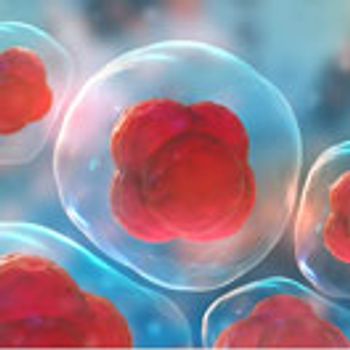
Manufacturers must address scale-out challenges of autologous cell therapy for commercial manufacturing.

Manufacturers must address scale-out challenges of autologous cell therapy for commercial manufacturing.

The site can now support customized product and bioprocess development and custom cell and gene therapy reagent manufacturing.

The company will invest $75 million into its Canton, MA, facility to expand its viral vector, gene therapy, and contract development and manufacturing capabilities.

The VIA Capsule from Cytiva is a liquid nitrogen-free cryogenic shipment system designed to transport cell therapies.

Ori Biotech is partnering with manufacturers and materials suppliers to develop an automated system for cell and gene therapy manufacturing.

Hitachi Chemical Advanced Therapeutics Solutions and apceth Biopharma entered into long-term development and manufacturing services agreements for the clinical and commercial supply of multiple bluebird bio therapies.

The center will be located at NJIT’s Life Sciences and Engineering center and will feature two good manufacturing practices suites that are expected to be completed and operational during the summer of 2020.

The companies will collaborate on the discovery and development of next-generation drug and engineered cell therapies focused on natural killer cells.

Thermo Fisher is focused on investing to expand three specific areas of demand: biologics, cell and gene therapy, and drug product development and commercial capabilities.
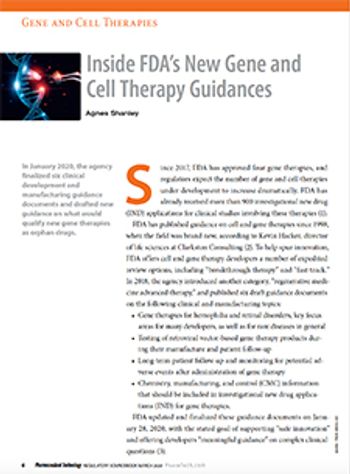
In January 2020, the agency finalized six clinical development and manufacturing guidance documents and drafted new guidance on what would qualify new gene therapies as orphan drugs.

Tackling process development early on can better optimize manufacturing processes for emerging therapies.
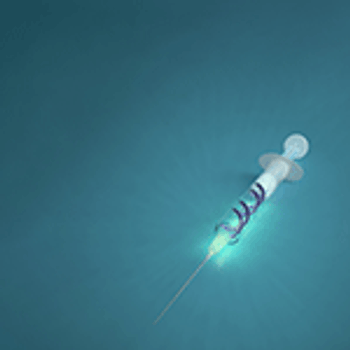
The growing interest in developing cell and gene therapies has prompted industry investment to grow manufacturing capacity.

The last year has seen intense investment activity into raising cell and gene therapy manufacturing capacity.

If approved, the therapy may become the first-choice treatment for relapsing multiple sclerosis patients and will be the first B-cell therapy that can be self-administered using an autoinjector pen.

The companies aim to develop novel cell therapies for treating multiple cancers.

New funding brings competitors, and a leading healthcare products distributor, into the standardization effort.

The new facility includes six classified environment rooms with space to expand.
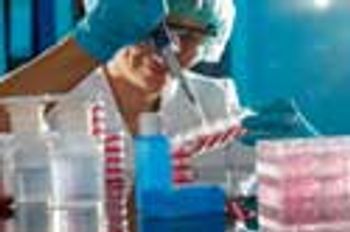
Contract partners must help innovators, especially smaller and virtual companies, consider manufacturability as early as possible in development. This requires focusing on technical and operational performance, as well as cost.
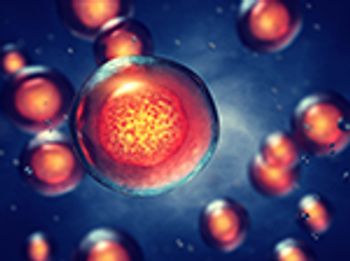
As cell and gene therapies become more prominent, industry is seeking the expertise and capabilities of outsourcing partners to ensure success.

The need for manufacturing speed inspires contract manufacturers to explore advanced processing technologies.

The new facility, to be operated under the newly formed CDMO, The Center for Breakthrough Medicines, will be located in King of Prussia, PA, and will increase manufacturing capacity for cell and gene therapies.

The new course is directed at analyzing the skills gap in the manufacture of cell and gene therapies as they progress toward manufacturing at scale.

The new company will work to provide the manufacturing technologies and processes needed to develop and commercialize new cell and gene therapies through individual company products and expertise.

The agreement centers around the development of new stem-cell derived allogeneic T-cell therapies for the treatment of cancer.

GE Healthcare Life Sciences’ new facility for cell and gene processing supplies will be open in 2022.